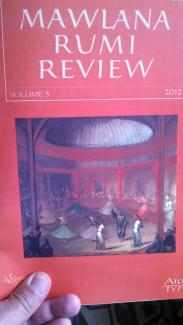I just read an interesting article, “Boundless Love,” by Alberto Ambrosio, a Dominican here in Istanbul. It is about the religious meaning of love in Sufism, based on Ismā’īl al-Anqarawī’s commentary on Rumi’s three volume poem Mathnawī.
Not to spoil the surprise, but Ambrosio identifies two kinds of love, ‘ishq and muhabbet. Muhabbet is the affectionate love found in friendship, while ‘ishq is the passionate love of eroticism. Infinite muhabbet is really proper only to God, but in human beings we discover a reflex of this boundless love that makes us aspire towards God. However, it is ‘ishq that is the real, infinite force within humans that pulls us towards the infinite God. ‘Ishq is natural to humans and makes us desire something infinite. It represents a departure of love from its finite condition, and so is the boundless love that draws us into God.
I have come across the idea of erotic love being the ultimate power drawing us into the infinite divine in Hinduism and in some forms of tantric Buddhism. I have even seen it used by Christian mystics as a way of describing their ecstatic feelings of love for God. But it seems not to quite fit in Christianity, and not because there is something wrong with eroticism or with sex. But in Christianity, we believe that the highest love is to love as God loves since God is love itself. In eroticism there is always that infinite need longing to be fulfilled, a need for the other impelling you forward. This is indeed where Rumi says it has its power to transform us. But God loves without needing anything in the beloved. God loves just to love, because that is what God is/does. While we are still loving to fill a need, we are still not loving as God loves. What Christians seek is to love just to love, and to love everything infinitely—God, neighbor, self, and all of creation.
Or at least that is what I think at this point. Add your comment.
